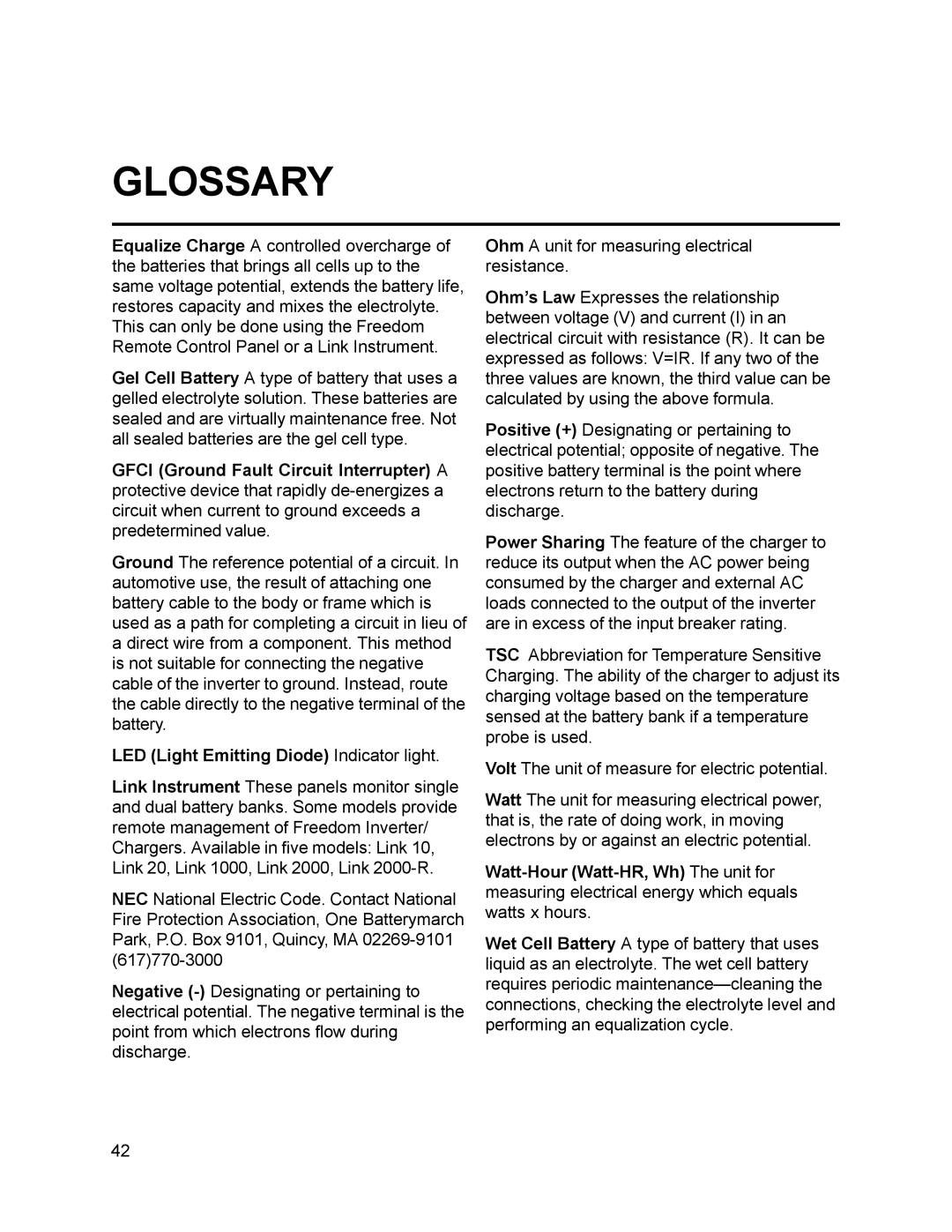GLOSSARY
Equalize Charge A controlled overcharge of the batteries that brings all cells up to the same voltage potential, extends the battery life, restores capacity and mixes the electrolyte. This can only be done using the Freedom Remote Control Panel or a Link Instrument.
Gel Cell Battery A type of battery that uses a gelled electrolyte solution. These batteries are sealed and are virtually maintenance free. Not all sealed batteries are the gel cell type.
GFCI (Ground Fault Circuit Interrupter) A protective device that rapidly
Ground The reference potential of a circuit. In automotive use, the result of attaching one battery cable to the body or frame which is used as a path for completing a circuit in lieu of a direct wire from a component. This method is not suitable for connecting the negative cable of the inverter to ground. Instead, route the cable directly to the negative terminal of the battery.
LED (Light Emitting Diode) Indicator light.
Link Instrument These panels monitor single and dual battery banks. Some models provide remote management of Freedom Inverter/ Chargers. Available in five models: Link 10, Link 20, Link 1000, Link 2000, Link
NEC National Electric Code. Contact National Fire Protection Association, One Batterymarch Park, P.O. Box 9101, Quincy, MA
Negative
Ohm A unit for measuring electrical resistance.
Ohm’s Law Expresses the relationship between voltage (V) and current (I) in an electrical circuit with resistance (R). It can be expressed as follows: V=IR. If any two of the three values are known, the third value can be calculated by using the above formula.
Positive (+) Designating or pertaining to electrical potential; opposite of negative. The positive battery terminal is the point where electrons return to the battery during discharge.
Power Sharing The feature of the charger to reduce its output when the AC power being consumed by the charger and external AC loads connected to the output of the inverter are in excess of the input breaker rating.
TSC Abbreviation for Temperature Sensitive Charging. The ability of the charger to adjust its charging voltage based on the temperature sensed at the battery bank if a temperature probe is used.
Volt The unit of measure for electric potential.
Watt The unit for measuring electrical power, that is, the rate of doing work, in moving electrons by or against an electric potential.
Wet Cell Battery A type of battery that uses liquid as an electrolyte. The wet cell battery requires periodic
42
